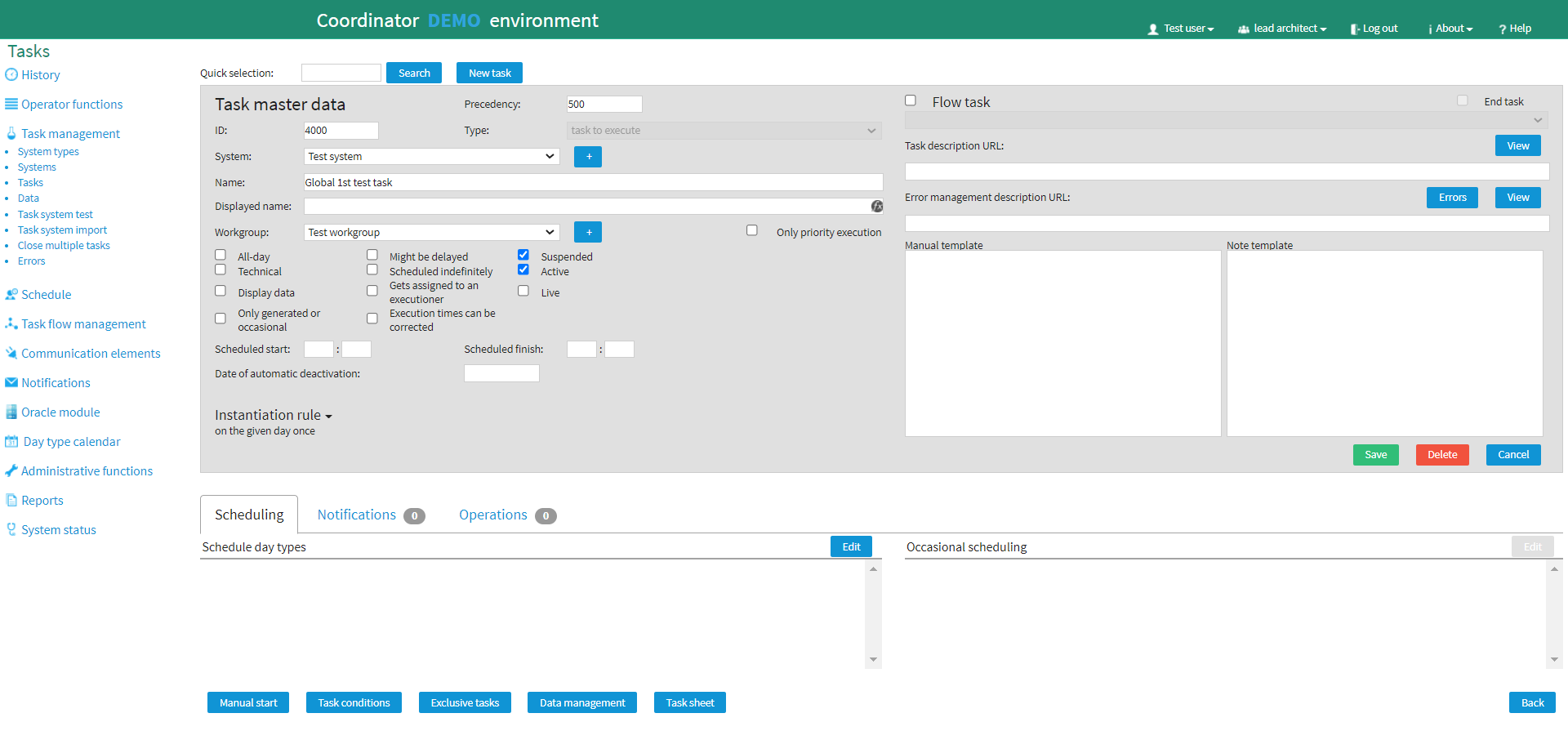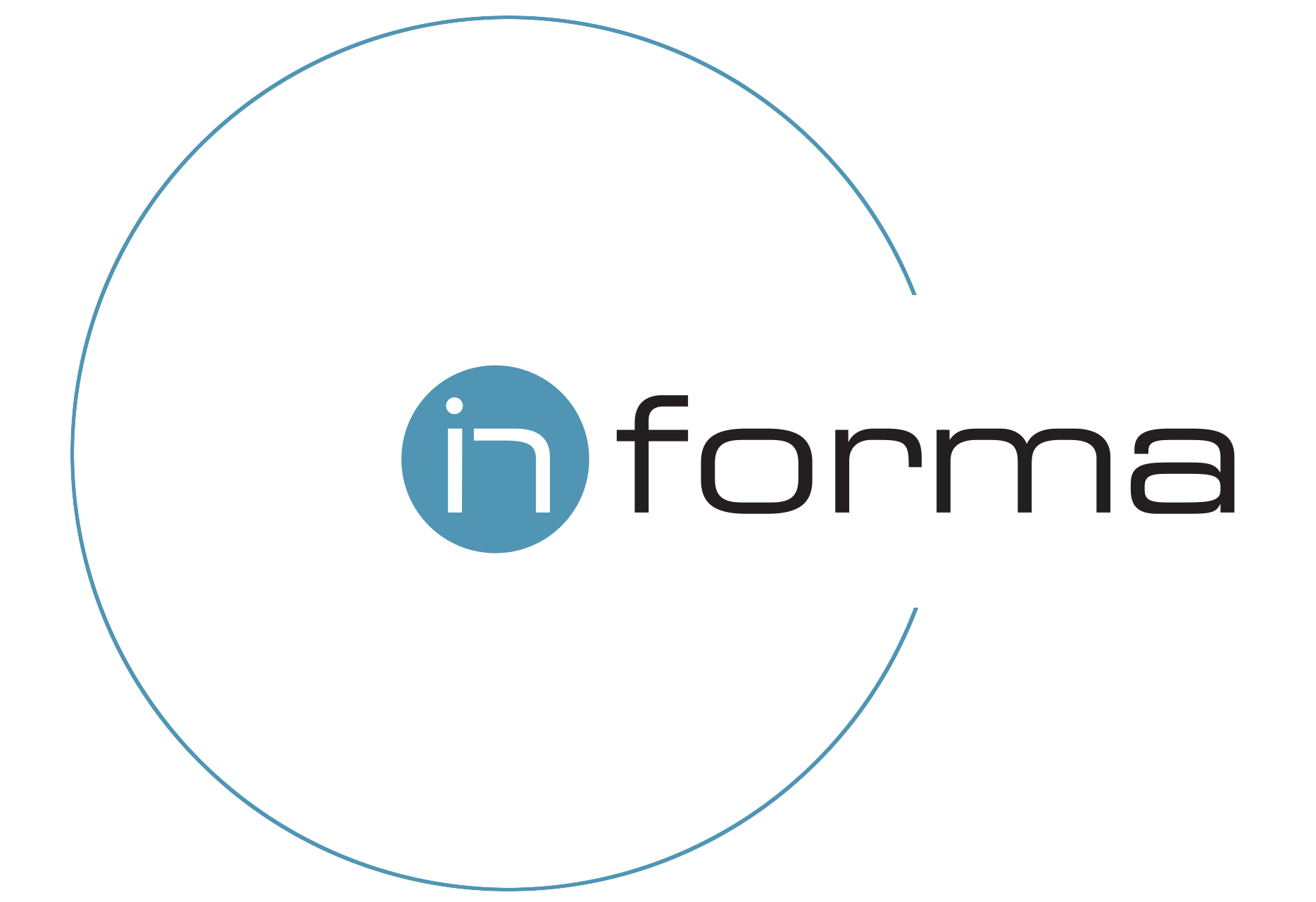Coordinator
The system that controls and synchronizes
The Coordinator system
What is the Coordinator?
The Coordinator is a dynamically configurable, customizable process controller and journaling system. Its key function is to manage and coordinate the tasks of different workgroups in the company.
Each user’s tasks can be easily defined in the Coordinator. They can be scheduled in the system and their execution can be controlled by logical conditions.
The Coordinator uses effective means to ensure that the task is carried out by the employee responsible for it or that it is executed out automatically by the Coordinator itself. Thus, notions like “forgotten” and “missed” become unknown in the company.
What is the goal of the Coordinator?
The primary goal of the Coordinator is to improve the efficiency, orderliness, traceability, and control of corporate processes.
This goal is accomplished with a flexibly configurable task designer and scheduler module. The business logic of the Coordinator is responsible for ensuring that tasks appear to users at exactly the right time and in the right workgroup.
How does the Coordinator work?
The core of the Coordinator’s operation is a parameterized plan stored in the Design module of the system, based on which the Coordinator displays the tasks to be performed to the affected users. This plan can also record tasks in which no users are involved, but the tasks themselves perform certain operations (e.g.: executing a batch script, file processing, data modification, etc.).
The preparation of the Coordinator plan is supported by a model that represents reality well
The three most important objects in the plan are: workgroup, task and calendar. When drawing the initial draft plan, the first step is to depict the workgroups, conditions, and schedule of the tasks.

Fig. 1: Coordinator draft plan example
The complexity of the conditions of the tasks effectively supports the refinement of the plan
An extremely complex set of conditions can be configured for the Coordinator’s tasks. This way, the complexity of the real-world processes can be represented well within the Coordinator.
The refined plan prepared after the draft now contains all the information based on which the Coordinator can run the process that matches reality. It also allows designers to test the new task flow, executing it without affecting the production process flow.
Operations assigned to tasks increase automation
As we have seen before, the Coordinator tasks are able to perform operations using the system’s operation engine, so the Coordinator is actively involved in various operations (batch running, file processing, data modification, e-mailing, etc.), thereby increasing automation.
The Coordinator improves the digitalization of the company
The system logs all tasks performed in it together with a timestamp, status and the assigned user. At the same time, it creates a reportable digital diary of the processes it manages. These reports can also be displayed in Excel format.
The Coordinator strengthens the coherence of different platforms
The Coordinator can receive information from other systems and send information to other systems. Among other things, it can receive automated e-mails, make web service calls, or even run Oracle scripts. This ability can be flexibly expanded (e.g. Jira connection).
Through its links with other systems, the Coordinator is able to coordinate the operation of different platforms.

Fig. 2: A task’s master data
What else does the Coordinator provide?
The Task Flow module can be used to support business processes
The Coordinator’s Task Flow module allows you to create Forms with any data content. Access to this data can be controlled by workgroups, making it easier for the Coordinator to control simpler business processes.
For example, support for a bidding process.
The Test module – through time simulation – makes it safe to add new tasks
The Coordinator Test module is able to simulate the behavior of an existing task system.
In the Test module, a user with the designer role can set the date, time, and minute when he wants to examine the behavior of the task system he created, safely testing the effects of the newly added tasks on the process.
The Export-Import module speeds up the arming of tasks
When the Coordinator is installed in separate test and production environments, the task system which has been tested in the test environment can be seamlessly transferred to the production environment using the Export-Import module.
This means that the tasks selected in the test environment, along with all their parameters, are saved by the Coordinator in an export XML file. By simply uploading this file to the production server, previously tested tasks can be used again.
The Process Coordinator Mobile Client extends the application possibilities beyond the intranet
The Coordinator also has a Mobile Client (iOS, Android), which allows users to simply use the system’s basic functions with their smart devices.
What support do we provide?
Within the framework of product support, we can provide written and oral expert advice (e-mail, telephone) on working days between 8 am and 5 pm, including, if possible, immediate problem solving.
Version control ensures the continuous delivery and use of the results of improvements in the system modules. The software is characterized by continuous development, based on both our own development plan, as well as the requests and proposals of our clients.
Do you have any questions?
Contact us!


Informa Számítástechnikai és Szolgáltató Kft.
Phone
+36 74 565 669
+36 30 277 36 85
Address

Headquarters:
1117 Budapest, Szerenád u. 4. "A" ép 12. em. 2.
Site:
7200 Dombóvár, Árnyas u. 28.

